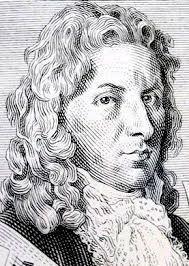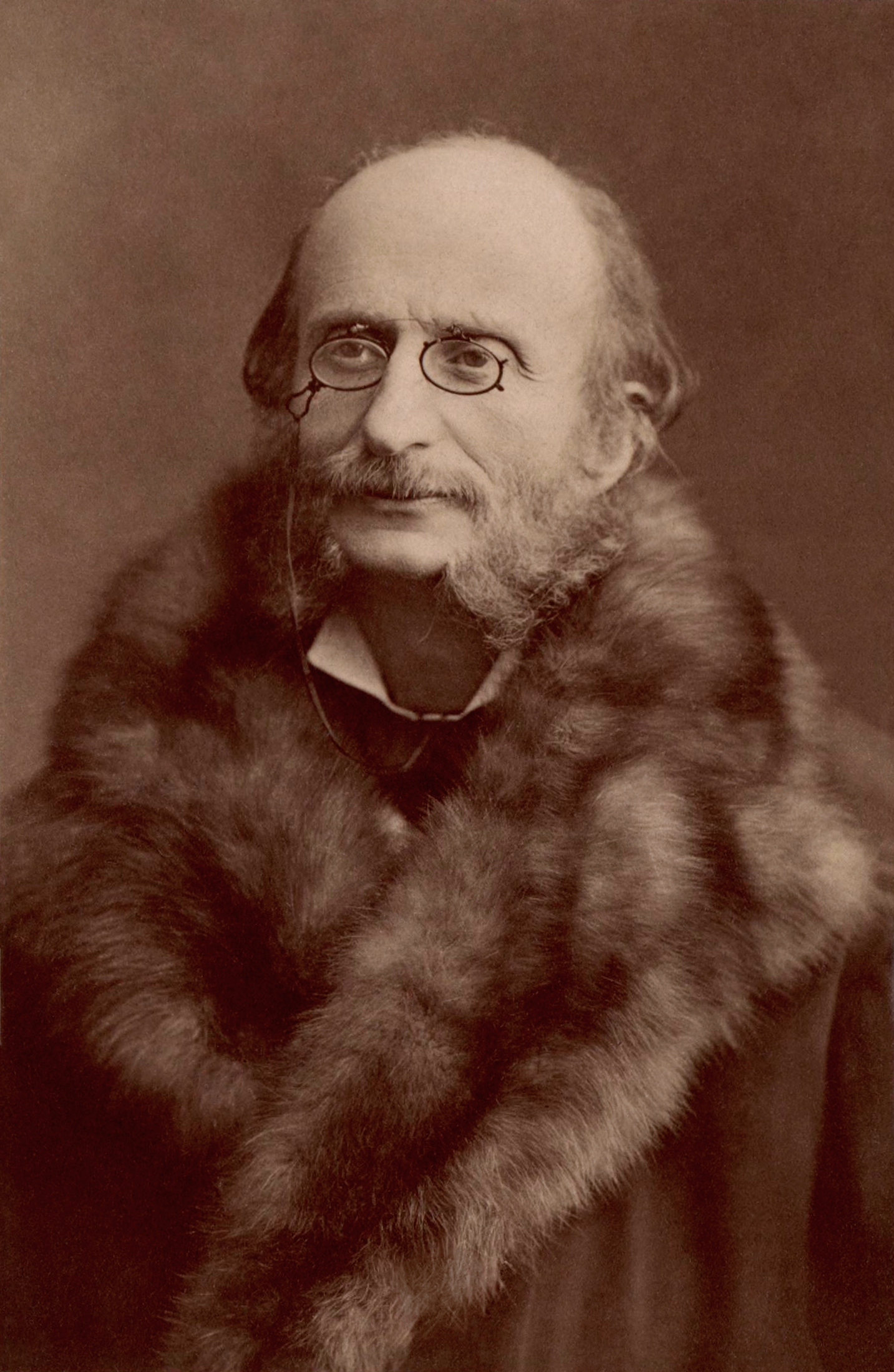This Week in Classical Music: June 15, 2020. Musical dynasties, Stravinsky. Several very interesting composers were born this week, two of them belonging to dynasties: Johann Stamitzwas the head of one, while Johann Christoph Friedrich Bach was one of several sons of Johann Sebastian who became prominent composers. Johann Stamitz was born on June 18th of 1717 in Bohemia, then ruled by the Habsburgs and to a large extent dominated by the German language and Austrian-German culture. Stamitz was a violin virtuoso; sometime around 1741 he was hired by the Mannheim Court to play in the famous orchestra. Stamitz’s career advanced quickly: he was soon appointed Konzertmeister, then Director of Court music and the orchestra’s chief conductor. Stamitz developed the orchestra into the “most renowned ensemble of the time, famous for its precision and its ability to render novel dynamic effects,” to quote the musicologist and historian Eugene Wolf. Johann’s sons Carl and Anton were among the best composers of the Mannheim school, of which their father was the founder.
Johann Christoph Friedrich Bach was Johan Sebastian’s fifth son. He was born on June 21stof 1732 in Leipzig, where his father was serving as Thomaskantor teaching at the Thomasschuleand composing for and playing at the Thomaskirche. J.C.F. is not as well known as his half-brothers Whilhelm Friedeman and Carl Philipp Emanuel, or his brother Johann Christian. Part of the reason may be that many of his scores were lost during the WWII bombing of Berlin; they were stored at the National Institute of the German Music Research, and most of its collection of scores and musical instruments were lost. Here’s his lively Piano Concerto in E Major, perfomed by Cyprien Katsaris, piano, with the Orchestre de Chambre du Festival d`Echternach, Yoon K. Lee conducting.
We celebrated Charles Gounod’s 200th anniversary in 2018, you can check out our entry here. Edvard Grieg was born on this day in 1843. And then there was Jacques Offenbach, a German-Jewish composer from Cologne who practically invented the genre of operetta and became the most popular French composer of his time. Offenbach wrote 100 opera-buffe (operettas) and one unfinished opera, The Tales of Hoffmann, a staple of the opera repertoire. Here’s the overture to La Grande-Duchesse de Gérolstein. It’s not serious music, and was composed to be light, but the orchestration is quote brilliant and the whole piece is a lot of fun. In this recording the Philharmonia Orchestra is conducted by Sir Neville Marriner. (By the way, the librettists of La Grande-Duchesse were Henri Meilhac and Ludovic Halévy – Halévy was the nephew of another French Jewish composer Fromental Halévy; Meilhac and Halévy also co-wrote the libretto for the famous Carmen.)
The composer who towers over all of the above is Igor Stravinsky, born June 17th of 1882. Please check our previous entries as there are many, for example here, here and here.
Musical dynasties
This Week in Classical Music: June 15, 2020. Musical dynasties, Stravinsky. Several very interesting composers were born this week, two of them belonging to dynasties: Johann Stamitz was the head of one, while Johann Christoph Friedrich Bach was one of several sons of Johann Sebastian who became prominent composers. Johann Stamitz was born on June 18th of 1717 in Bohemia, then ruled by the Habsburgs and to a large extent dominated by the German language and Austrian-German culture. Stamitz was a violin virtuoso; sometime around 1741 he was hired by the Mannheim Court to play in the famous orchestra. Stamitz’s career advanced quickly: he was soon appointed Konzertmeister, then Director of Court music and the orchestra’s chief conductor. Stamitz developed the orchestra into the “most renowned ensemble of the time, famous for its precision and its ability to render novel dynamic effects,” to quote the musicologist and historian Eugene Wolf. Johann’s sons Carl and Anton were among the best composers of the Mannheim school, of which their father was the founder.
of Johann Sebastian who became prominent composers. Johann Stamitz was born on June 18th of 1717 in Bohemia, then ruled by the Habsburgs and to a large extent dominated by the German language and Austrian-German culture. Stamitz was a violin virtuoso; sometime around 1741 he was hired by the Mannheim Court to play in the famous orchestra. Stamitz’s career advanced quickly: he was soon appointed Konzertmeister, then Director of Court music and the orchestra’s chief conductor. Stamitz developed the orchestra into the “most renowned ensemble of the time, famous for its precision and its ability to render novel dynamic effects,” to quote the musicologist and historian Eugene Wolf. Johann’s sons Carl and Anton were among the best composers of the Mannheim school, of which their father was the founder.
Johann Christoph Friedrich Bach was Johan Sebastian’s fifth son. He was born on June 21stof 1732 in Leipzig, where his father was serving as Thomaskantor teaching at the Thomasschuleand composing for and playing at the Thomaskirche. J.C.F. is not as well known as his half-brothers Whilhelm Friedeman and Carl Philipp Emanuel, or his brother Johann Christian. Part of the reason may be that many of his scores were lost during the WWII bombing of Berlin; they were stored at the National Institute of the German Music Research, and most of its collection of scores and musical instruments were lost. Here’s his lively Piano Concerto in E Major, perfomed by Cyprien Katsaris, piano, with the Orchestre de Chambre du Festival d`Echternach, Yoon K. Lee conducting.
We celebrated Charles Gounod’s 200th anniversary in 2018, you can check out our entry here. Edvard Grieg was born on this day in 1843. And then there was Jacques Offenbach, a German-Jewish composer from Cologne who practically invented the genre of operetta and became the most popular French composer of his time. Offenbach wrote 100 opera-buffe (operettas) and one unfinished opera, The Tales of Hoffmann, a staple of the opera repertoire. Here’s the overture to La Grande-Duchesse de Gérolstein. It’s not serious music, and was composed to be light, but the orchestration is quote brilliant and the whole piece is a lot of fun. In this recording the Philharmonia Orchestra is conducted by Sir Neville Marriner. (By the way, the librettists of La Grande-Duchesse were Henri Meilhac and Ludovic Halévy – Halévy was the nephew of another French Jewish composer Fromental Halévy; Meilhac and Halévy also co-wrote the libretto for the famous Carmen.)
Offenbach, a German-Jewish composer from Cologne who practically invented the genre of operetta and became the most popular French composer of his time. Offenbach wrote 100 opera-buffe (operettas) and one unfinished opera, The Tales of Hoffmann, a staple of the opera repertoire. Here’s the overture to La Grande-Duchesse de Gérolstein. It’s not serious music, and was composed to be light, but the orchestration is quote brilliant and the whole piece is a lot of fun. In this recording the Philharmonia Orchestra is conducted by Sir Neville Marriner. (By the way, the librettists of La Grande-Duchesse were Henri Meilhac and Ludovic Halévy – Halévy was the nephew of another French Jewish composer Fromental Halévy; Meilhac and Halévy also co-wrote the libretto for the famous Carmen.)
The composer who towers over all of the above is Igor Stravinsky, born June 17th of 1882. Please check our previous entries as there are many, for example here, here and here.